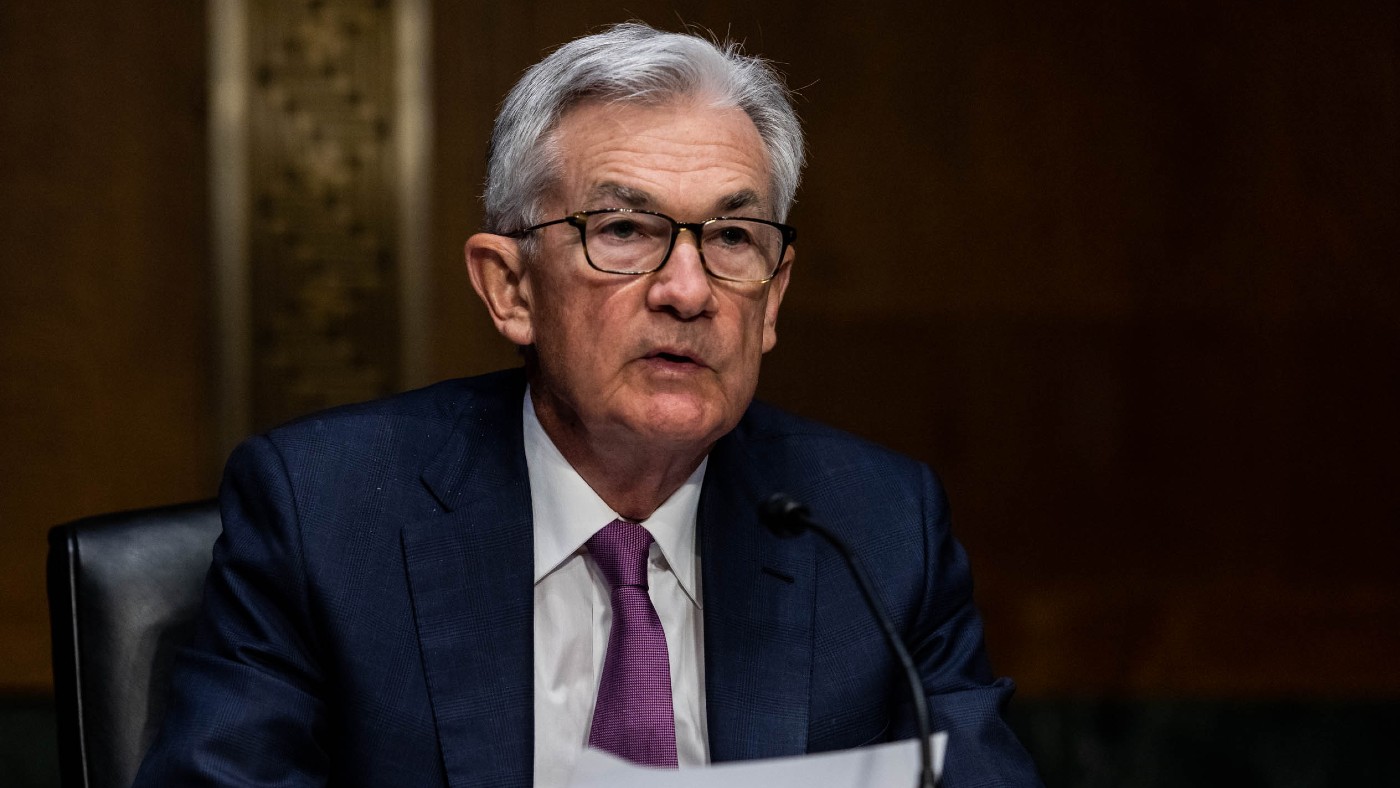The tumult in markets: stocks are in a ‘superbubble’
The party is finally drawing to an end, it seems. How big will the bust be?

A free daily email with the biggest news stories of the day – and the best features from TheWeek.com
You are now subscribed
Your newsletter sign-up was successful
“It’s been an ugly start to the year” on the US stock market, said Michael P. Regan on Bloomberg – and “many on Wall Street are bracing for it to get even uglier”. By midweek, the S&P 500 had dropped 10% since the start of the year, and the tech-heavy Nasdaq by 15% – but “market pundits seemed more shaken than those numbers alone would suggest”, with talk of “long winters and bursting bubbles”. There’s a sense that for the first time in ages, the markets are “going to have to grit out losses without help from an accommodating US Federal Reserve”. The strong balance sheets of many companies “could eventually help put a floor under equity losses”, but “the long-reigning expectation that risky assets will mostly go up” has been broken. This sell-off may prove “the ultimate test of what’s real and what’s not”.
The background to the nervousness was this week’s US Fed policy meeting, said DealBook in The New York Times. While few pundits expected the Fed to raise interest rates this week to tackle galloping US inflation (currently at a 40-year high of 7%), no one doubts it is chairman Jay Powell’s “main concern”. Most market observers predict the first rise will come in March. After that, wrote Goldman Sachs economist David Mericle, in a note to clients, the Fed may look to tighten “at every meeting until the inflation picture changes”. Some economists were also expecting Powell to signal “an aggressive contraction” of the Fed’s balance sheet, said The Economist – a “quantitative tightening” of the assets that were purchased to smooth the economy at the height of pandemic. Traders haven’t been waiting around to find out. The sell-off of stocks and bonds in recent weeks is a sign of their sense “that a hawk is circling overhead”.
It’s notable that US markets, caught up in their own woes, seem to be ignoring “the now very real prospect of war in Europe”, said Jeremy Warner in The Sunday Telegraph. Perhaps they see no point in reacting until the catastrophe “actually happens” – which it may not, given that Vladimir Putin has got the West “over a barrel, quite literally” over exports of oil and gas. The prospect of a war in Ukraine was certainly “in the mix” of this week’s sell-off in Europe, said Nils Pratley in The Guardian: but it was warnings from the US that really got traders going. “Let the Wild Rumpus Begin” was how Jeremy Grantham, the British co-founder of the Boston-based fund manager GMO, started his commentary, warning that stocks are in a “superbubble”, and that we’re about to hit the “vampire phase” of the bull market. Grantham called the dot-com and 2006 crashes. Once again, “he may have got his timing spot on”.
The Week
Escape your echo chamber. Get the facts behind the news, plus analysis from multiple perspectives.

Sign up for The Week's Free Newsletters
From our morning news briefing to a weekly Good News Newsletter, get the best of The Week delivered directly to your inbox.
From our morning news briefing to a weekly Good News Newsletter, get the best of The Week delivered directly to your inbox.
A free daily email with the biggest news stories of the day – and the best features from TheWeek.com
-
 What to know before filing your own taxes for the first time
What to know before filing your own taxes for the first timethe explainer Tackle this financial milestone with confidence
-
 The biggest box office flops of the 21st century
The biggest box office flops of the 21st centuryin depth Unnecessary remakes and turgid, expensive CGI-fests highlight this list of these most notorious box-office losers
-
 The 10 most infamous abductions in modern history
The 10 most infamous abductions in modern historyin depth The taking of Savannah Guthrie’s mother, Nancy, is the latest in a long string of high-profile kidnappings
-
 Currencies: Why Trump wants a weak dollar
Currencies: Why Trump wants a weak dollarFeature The dollar has fallen 12% since Trump took office
-
 Elon Musk’s starry mega-merger
Elon Musk’s starry mega-mergerTalking Point SpaceX founder is promising investors a rocket trip to the future – and a sprawling conglomerate to boot
-
 TikTok: New owners, same risks
TikTok: New owners, same risksFeature What are Larry Ellison’s plans for TikTok US?
-
 Will SpaceX, OpenAI and Anthropic make 2026 the year of mega tech listings?
Will SpaceX, OpenAI and Anthropic make 2026 the year of mega tech listings?In Depth SpaceX float may come as soon as this year, and would be the largest IPO in history
-
 Leadership: A conspicuous silence from CEOs
Leadership: A conspicuous silence from CEOsFeature CEOs were more vocal during Trump’s first term
-
 Ryanair/SpaceX: could Musk really buy the airline?
Ryanair/SpaceX: could Musk really buy the airline?Talking Point Irish budget carrier has become embroiled in unlikely feud with the world’s wealthiest man
-
 Powell: The Fed’s last hope?
Powell: The Fed’s last hope?Feature Federal Reserve Chairman Jerome Powell fights back against President Trump's claims
-
 Taxes: It’s California vs. the billionaires
Taxes: It’s California vs. the billionairesFeature Larry Page and Peter Thiel may take their wealth elsewhere